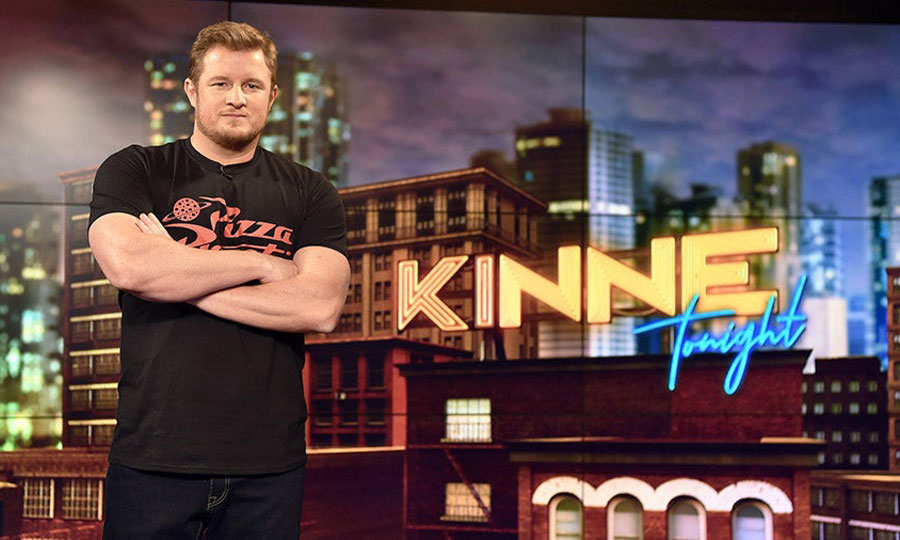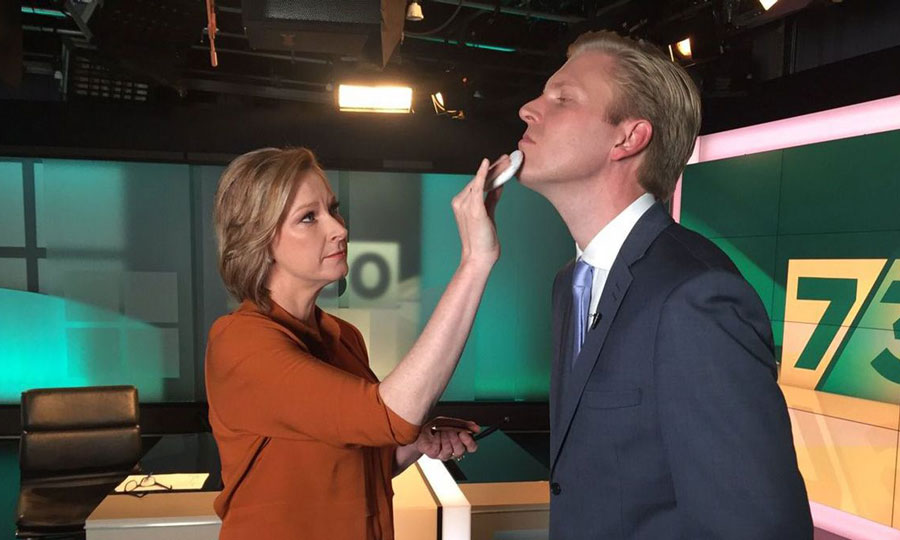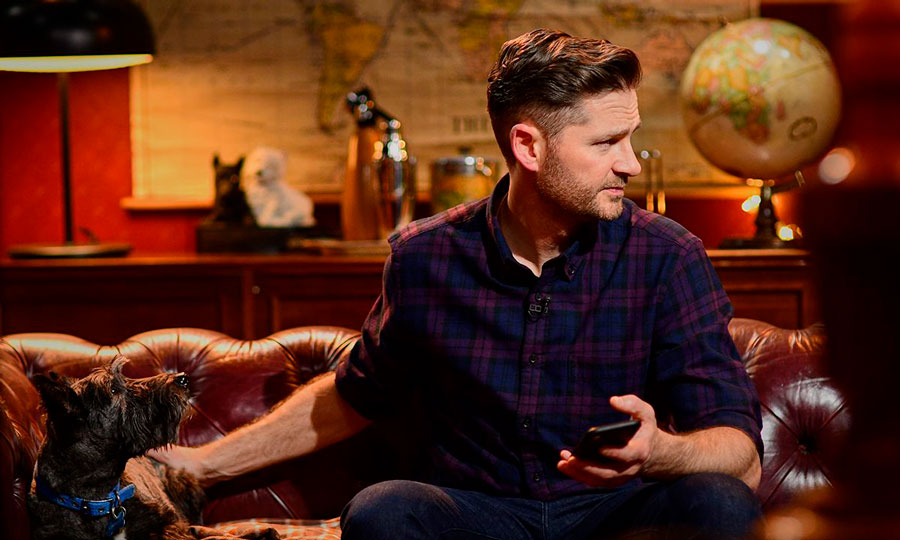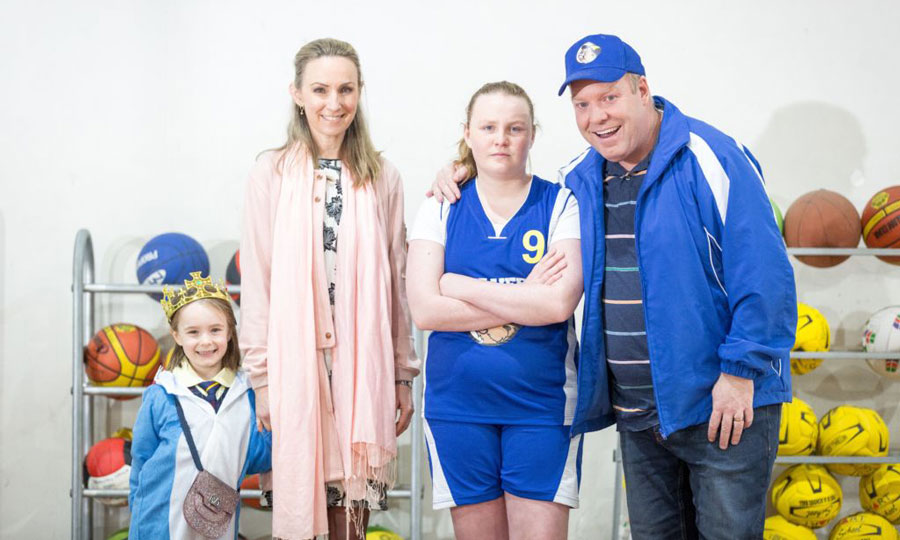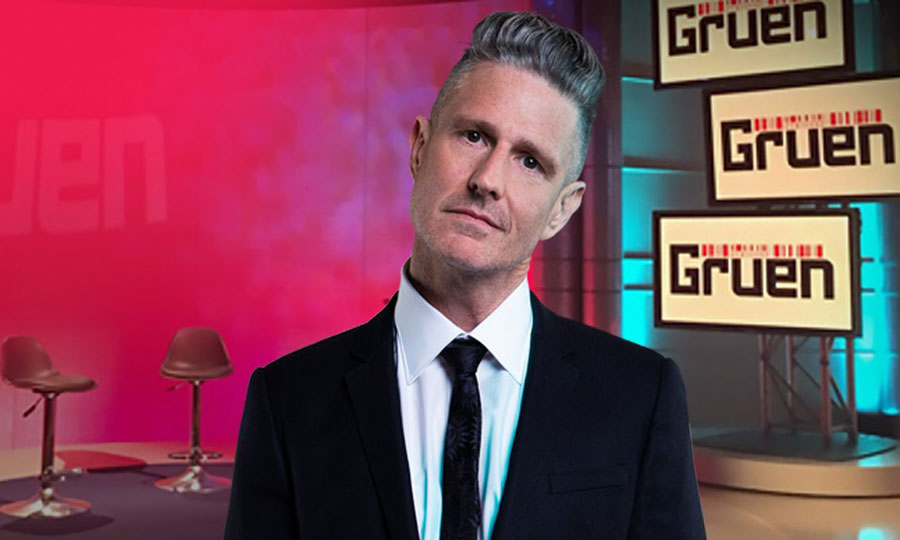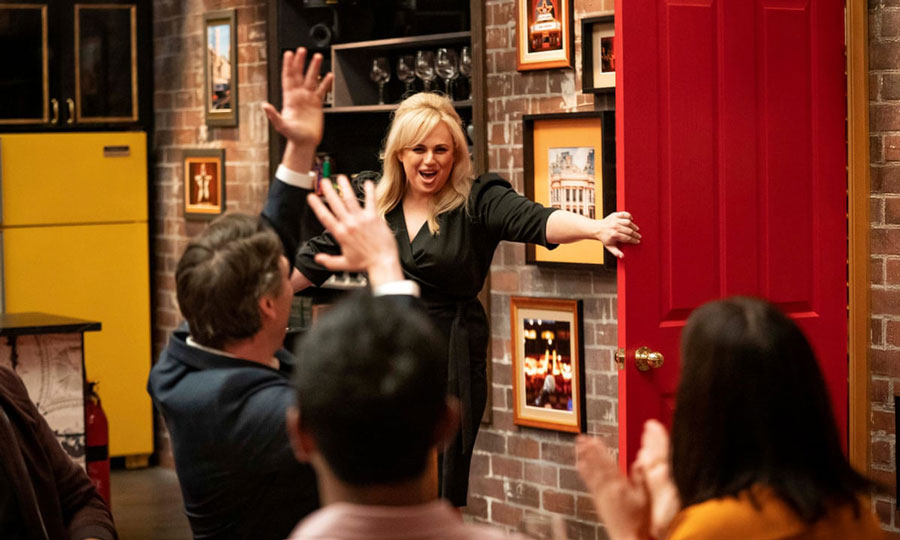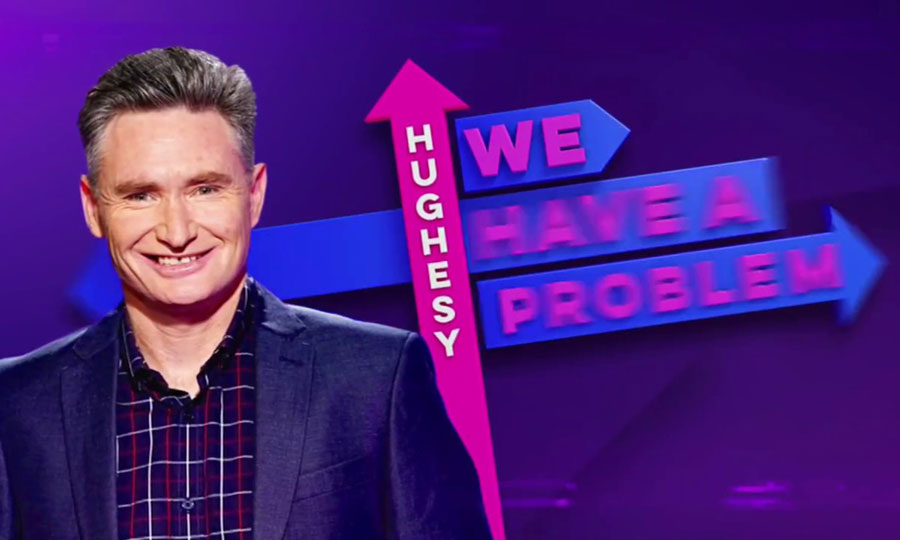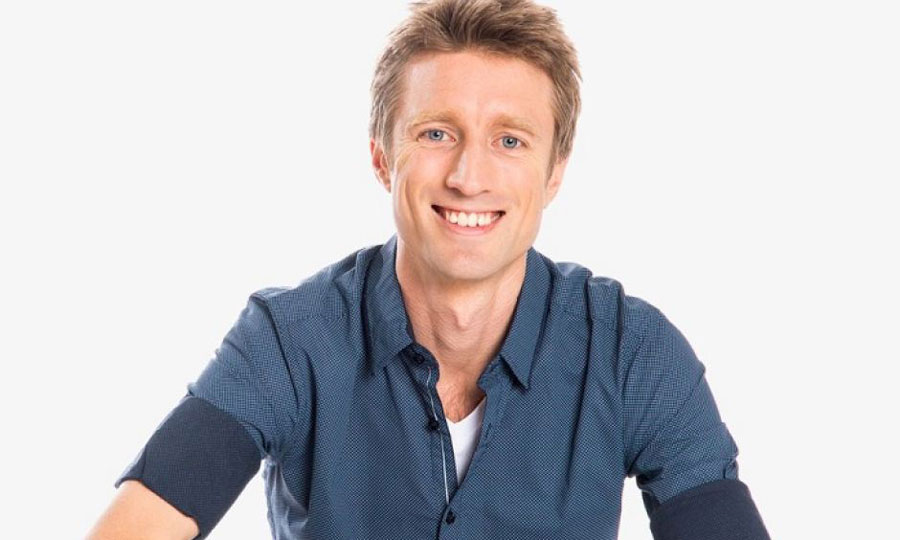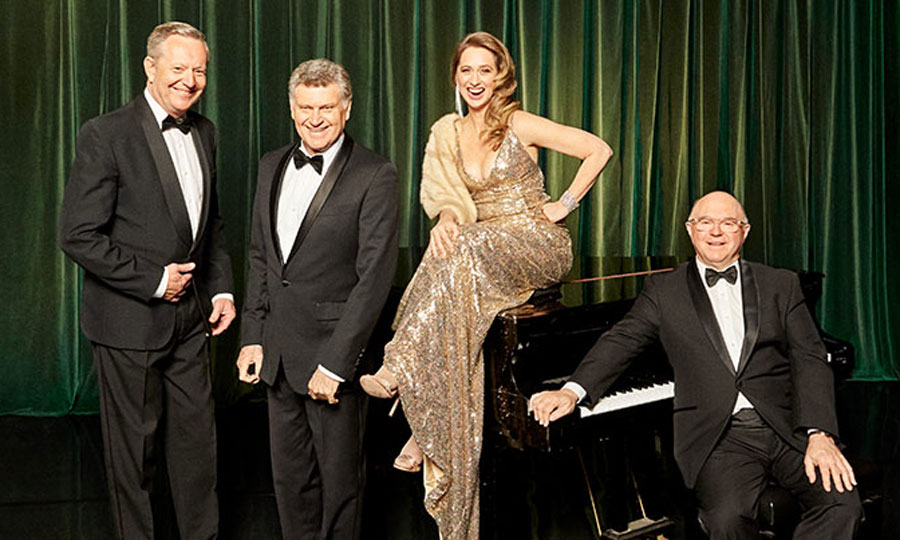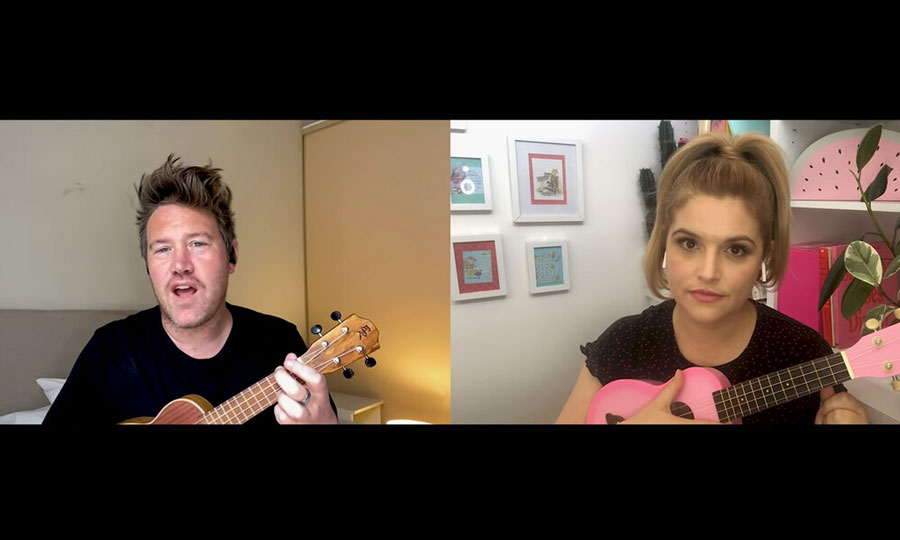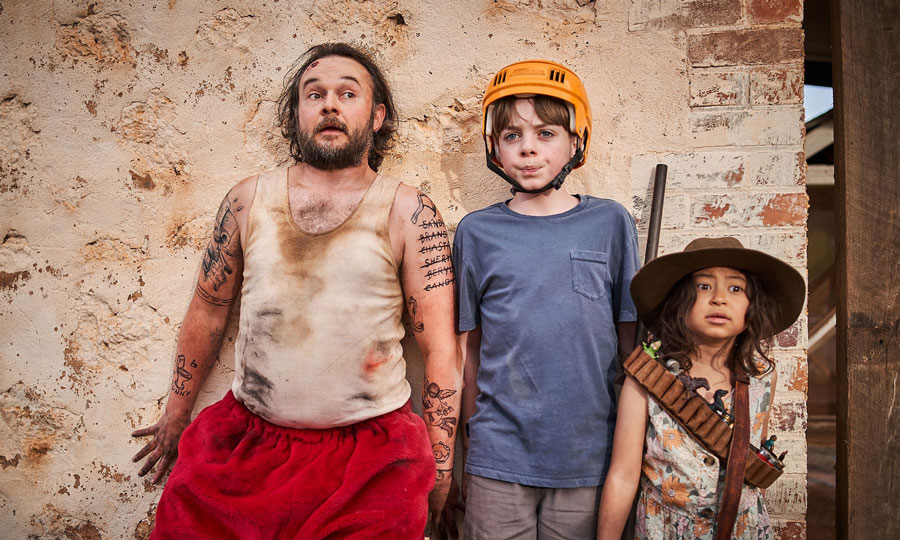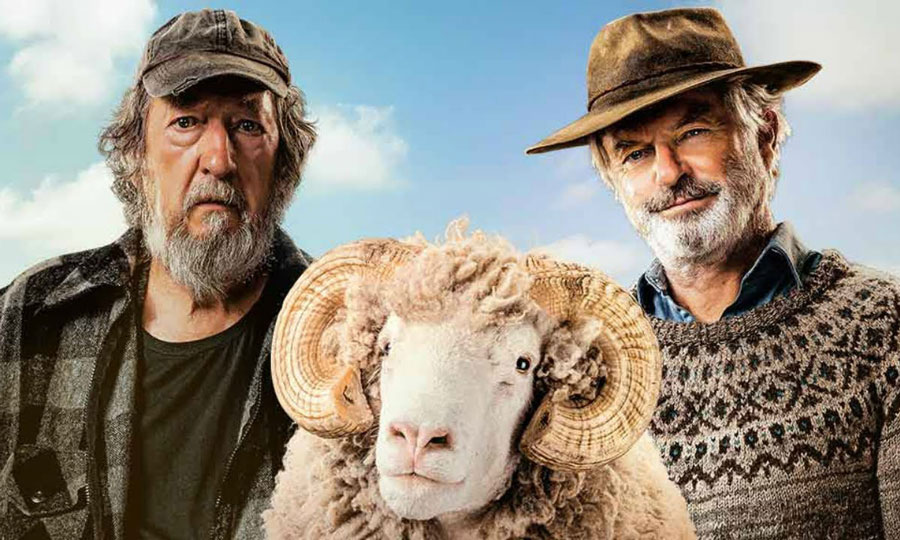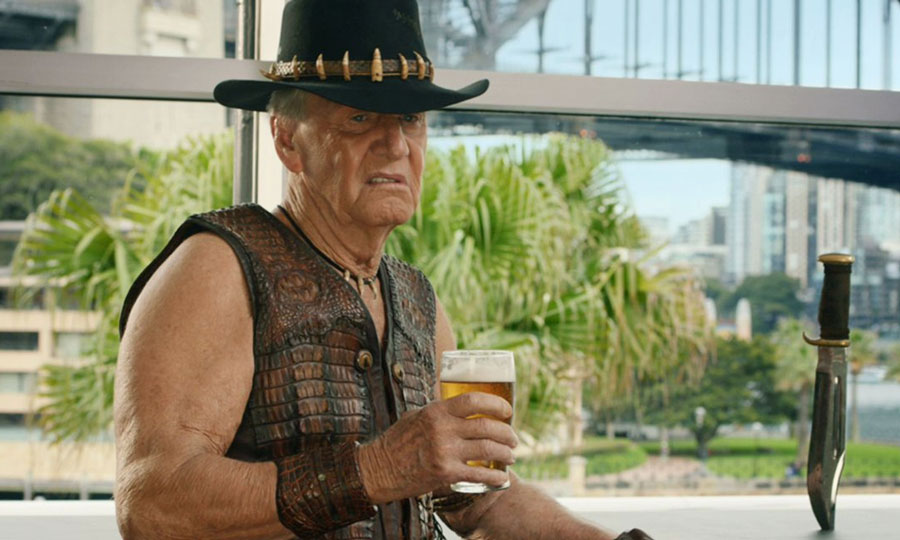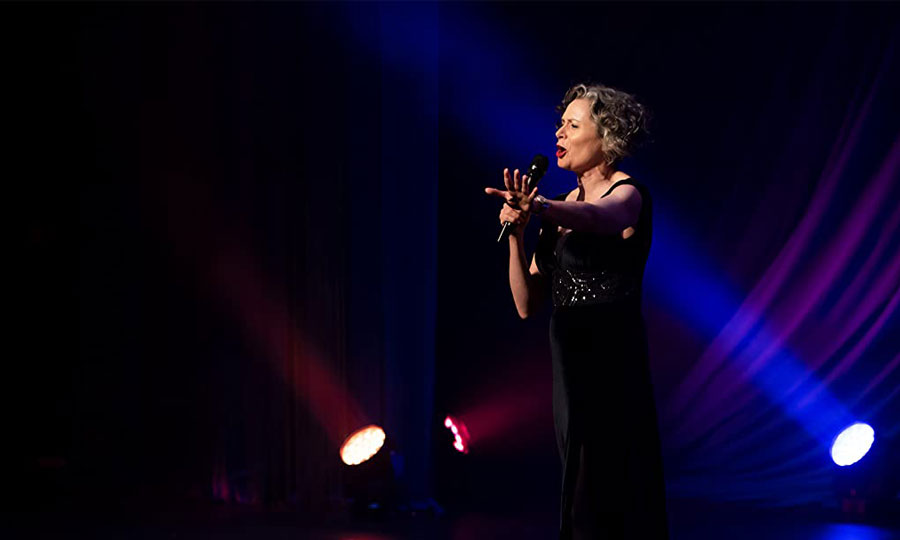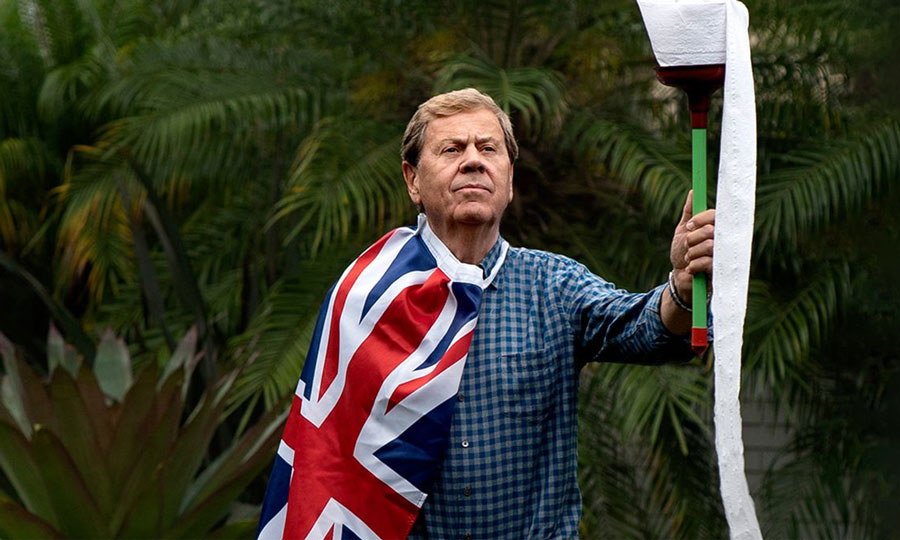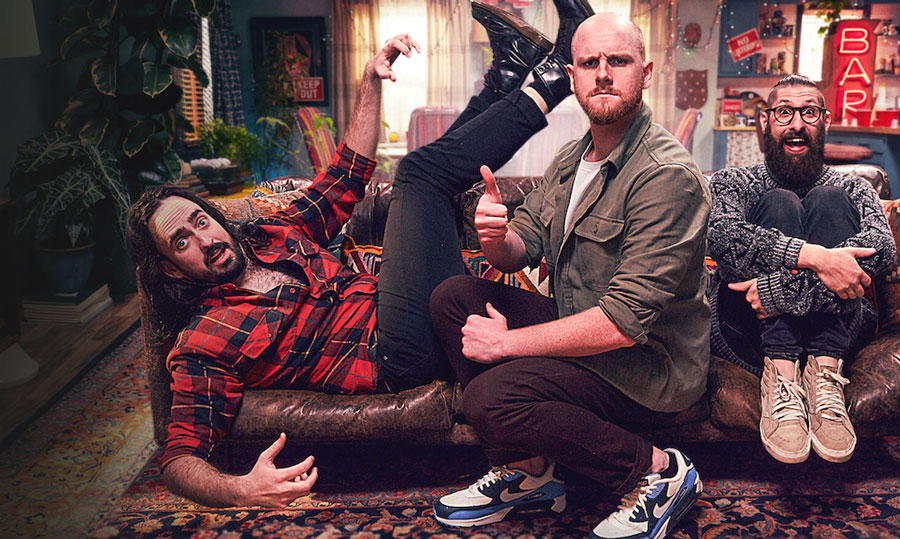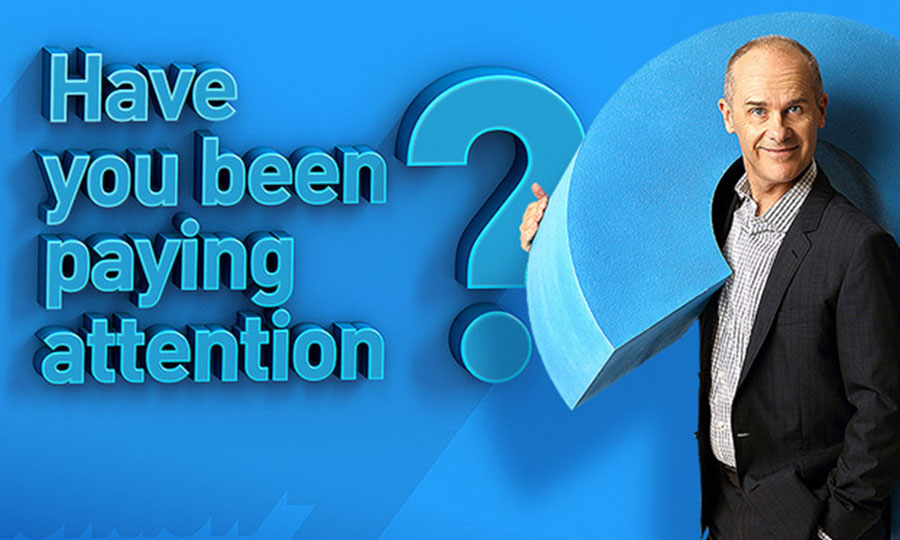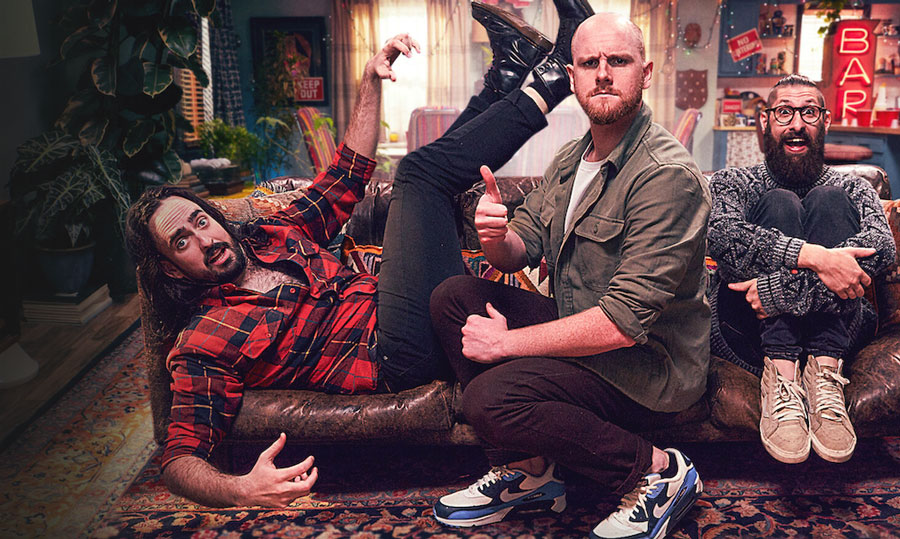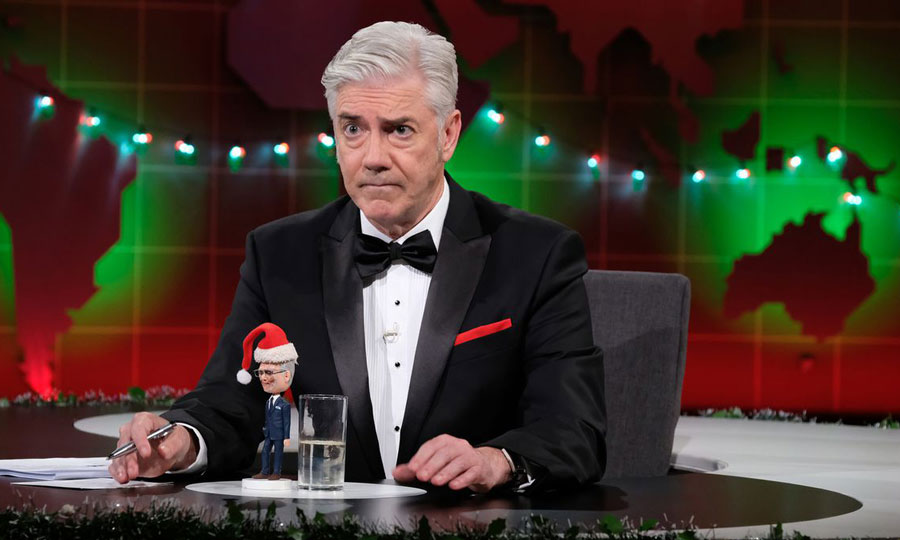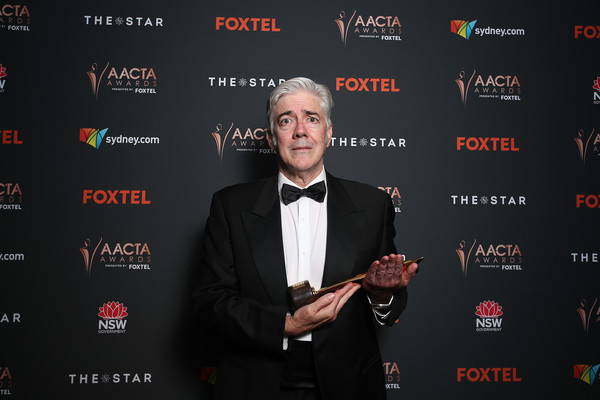Australian Tumbleweeds
So Much For the Aftertaste
Over the years there seems to be a growing disconnect between what audiences want in a comedy and what the ABC thinks they want. Audiences want to laugh; the ABC thinks they want a show set in some lush semi-rural regional getaway location so they can film the whole thing in rustic houses and cute cafes like it’s a tourism commercial. Guess which group Aftertaste falls into?
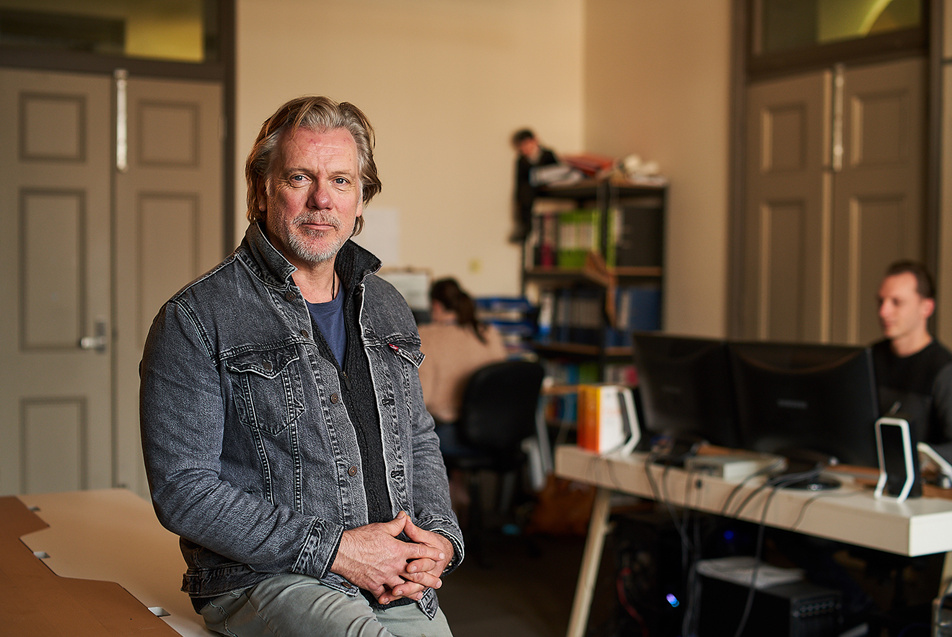
So yeah, good news for Rosehaven fans who’ve been thinking “I really wish this had slightly more conflict between the main characters”, bad news for people who really wish the ABC would give their tiny handful of sitcom slots to actual sitcoms and not these soothing travel brochures. Which in this case is even more annoying than usual, as there’s clearly the basics of an okay sitcom here.
You have one stereotype (the shouty angry world famous chef) smashed up against another (the feisty can-do teen girl) in a situation where they’re forced to work together to get something they both want (he needs redemption; she needs exposure). If this moved twice as fast and packed in twice the jokes, we’d have a hit on our hands.
Ok, probably not. For one thing, what “jokes” there are here largely come from a): swearing (mostly him), b): saying inappropriate things (mostly her) and c): putting a weird stress on statements to indicate they’re meant to be punchlines (you know what we mean – Rebel Wilson does this a lot). If you’ve seen the trailer, where chef dude says he worked with some famous chef and she replies “yeah – as a dish pig“, you know what we mean. It’s just an observation, not a punchline, and it stays that way no matter how hard you sell it.
Part of the problem is that there’s a lot going on here and they’re focusing on things that aren’t the basics. There’s definitely a decent comedy to be made about an angry white man trying to make a comeback only to discover that in 2021 that’s not possible (on the other hand: Eddie McGuire). There’s also a decent comedy to be made about an angry man coming home and trying to repair his broken relationships, a young woman who discovers the only way she can get the recognition she deserves is by riding on the coat-tails of some garbage dude, a clash between rival cutsey cafes in a small town AND SO ON.
It wouldn’t even be a problem that it’s trying to do all these things at once if it knew what was going on at the heart of the show. It’s clearly character-based, so if it’s a comedy then the characters stay the same and the jokes come from how they deal with what’s around them; if it’s a drama, they start in one place as a person and move to another.
After the first episode though, it’s clear that both our leads are going to just… wobble around. Angry chef is angry, then repentant, then angry; bubbly teen gets disillusioned, then bubbles back. In real life, sure, people are like this. But on television, it kinda helps to have a bit more structure – otherwise it just feels like you want to be a serious character study only there’s just not enough character there.
But who cares about plot and characterisation and jokes so long as you have loads of shots of food, right? You can imagine the commissioning editor’s hand slowly drifting under the desk as they realised that this could be a series that could combine the rural charm of a winery commercial with the mouth-watering imagery of a cooking magazine if only they got rid of that pesky comedy stuff.
Of course, we pretty much knew all this going in, but so long as the ABC keeps pretending this kind of thing is “comedy” we’re going to check it out just in case. Honestly, it’s not bad for what it is – which is a very pretty show that’s filed under comedy because it couldn’t cut it as a drama and c’mon, a guy shouting at an emu is hilarious – but what it is should be something the commercial networks make.
Probably with a big fat wine & tourism sponsorship up front.
Tears for Years
Okay so 2020 was a crap year… for comedy (let us know exactly how crap in the Australian Tumbleweeds Awards 2020 – voting is now open!), and in a surprise to just about no-one, The Yearly kept that trend going.
Usually we like to faff around a bit before cutting to the chase, but honestly: if you ever wondered just how much comedy you can get out of “ha ha we didn’t realise how bad it was going to get” jokes, then watching The Yearly will have you thinking exactly that, only without the “ha ha”.
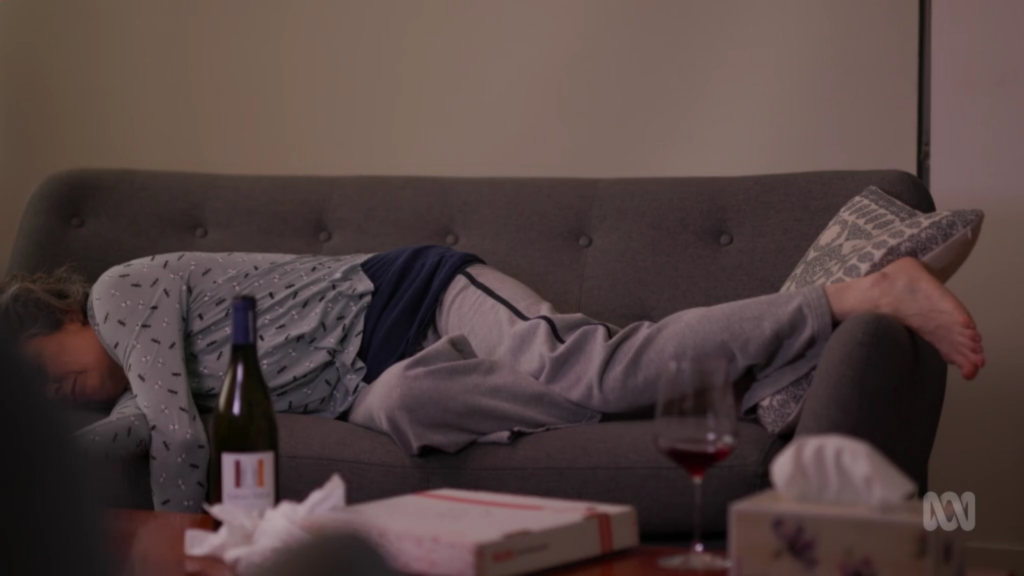
Of course, The Yearly‘s job isn’t to be funny: it’s all about providing viewers with a chance to remember things they’ve already seen, like Charlie Pickering’s face. But you know, toilet paper, hand sanitizer, wearing masks, TikTok clips, invisible Opposition Leaders, Dave Hughes pulling faces while talking about sport; surely there’s still some laughs left in there somewhere, right?
Unfortunately this overriding mission – it’s 58 minutes of hey guys, remember when this happened? – doesn’t really leave a whole lot of scope for jokes beyond “well, guess we were wrong about that”, “what was the deal with that?” and “yeah, we remember that”, none of which are all that funny after the fourth or fifth time. At least Luke McGregor explaining the budget contained actual information.
Seriously, this was a show looking back at 2020 that had a segment on how scary 2020 was that just… made the same points but in a spooky voice? We never thought we’d miss Tom Gleeson – and we don’t – but at least he had an established comedy character the show could use to put a new-ish spin on the same old jokes. Without him, all this offered was generic gags on “remember when” stories interspersed with sketches that might possibly have been funny if they hadn’t relied on the non-existent comedy stylings of one Charlie Pickering.
But of course, some things in 2020 just weren’t funny. When it came time for the Black Lives Matter protests, out came the sad music and the thoughtful coverage… while in no way examining any of the underlying issues, which was a bit of a problem as over on SBS 2020: The Last Year of Television was doing the exact same thing right down to the serious music, but actually making some real points about how the overwhelming whiteness of Australian television is part of the problem. Anyone see Briggs on The Yearly? Us neither.
As end of year clip shows go, probably the best thing we can say about The Yearly is that the Corona Cops segment only went three minutes. Actually, no: the best thing we can say about The Yearly is that, even more than a regular episode of The Weekly, it really smacked viewers in the face with exactly why Pickering’s “comedy” work on the ABC is so consistently shit.
2020 was a garbage year full of truly awful events; it’s tough material for a comedy show to tackle, especially a topical one like The Weekly. If you’re good at comedy, you find a way to engage with the world while still getting laughs – Mad as Hell, for example, found a strong balance between genuine outrage and silly surrealism. But the theme running throughout The Yearly was basically “all this would really suck… if we gave a shit, ha ha”.
Usually when we hate on the Corona Cops segment, it’s because it’s astoundingly unfunny found-footage bullshit. But here’s another reason: eight hundred people died in Victoria because of coronavirus: public health measures – enforced by police – were a sizable part of what got that outbreak under control. That’s not to say you can’t laugh at them, but making silly, dismissive jokes misses the point of what’s actually going on in at least some of the footage being used.
People who give a shit about the society around them can find a comedic take on that kind of situation (are police really the best people to be on the front lines of a public health emergency adversely affecting migrant and marginal communities?); people who don’t give a shit take footage of cops walking around and dub over it with limp jokes about how their police horse has coronavirus and “can we hide in your place? The virus is out of control!” Because ha ha cops telling people to wear masks is hilarious oh wait 800 dead.
The Yearly is made by people who don’t seem to know how to make the news funny, because to them the news is something that happens to other people. In 2020, that simply wasn’t the case; it was a big hurdle to leap, they smacked right into it, and having Pickering end the show by praising our leaders – that’s right, all of them – for focusing on the nation’s health over the economy while The Verve’s ‘Bittersweet Symphony’ played quietly underneath was stomach-turning. As more than one person said in 2020, get this shit off.
*
Charlie Brooker didn’t invent the bitchy clip show, but he did do a pretty decent job of locking down the format in such a way that now anyone can do it. This isn’t a bad thing: television needs as many sure-fire formats as it can get. So while Mitch McTaggart’s SBS special 2020: The Last Year of Television didn’t bring anything remotely new format-wise to the field of snarky year-in-review programs, it didn’t have to. The content was the point, and when the content is Australian television the laughs (at it) just keep on coming.
Keeping the focus on television gave it a major advantage over the more wide-ranging approach of The Yearly, in that most people don’t willingly watch Australian television. This meant that it was actually new information that, say, The Gloaming was crap or that Home & Away cut out a couple of mild gay kisses in Australia but left them in for the NZ version or that the recent Halifax F.P reboot just swapped out one minor police character for another mid-series without explaining why. Seems the promos on commercial television are totally insane: who knew?
This lazer-like focus on television for the full (SBS-with-ads) hour also had one big drawback: the whole thing got a bit samey after a while. Segment-for-segment, it was easily better than The Yearly, where even Judith Lucy’s take on television felt a little unfocused and an extended toilet paper sketch had us looking back fondly on the toilet paper jokes on Housos vs Virus.
But at least The Yearly kept mixing things up, presenting what was often pretty much the same material as Television (Pete Evans is a nutjob; who knew?) in a variety of ways. Television was the better show, but it just had one rock-solid approach to everything; to be fair, when you’re pointing out how morning shows are massively racist and Australian drama uses rape as a story device, you’re bound to get a bit repetitive.
(bonus points for taking aim at the ABC’s possibly meant to be comedic Operation Buffalo: that series was nuts, and not in a good way. Also, what’s the deal with Australian drama and snipers?)
Fortunately, while pointing out that Australian TV is crap is a cheap shot, it’s a cheap shot that always works; just ask this blog. And it wasn’t entirely a haters parade: Bluey pretty much stood alone in getting the thumbs up, which honestly seems about right for Australian television in 2020.
But when McTaggart did decide to sink the boots in, he went about it the way it should be done: he knew what he was talking about, he chose his targets well, and there was just enough passion behind the hating to make it clear that, on some level at least, this was a show made by people who actually gave a shit about the kind of country that puts racist, simplistic, pandering shows like A Current Affair and Sunrise to air day after day.
Also that A Country Practice clip featuring attempted cow murder was a classic.
The most wonderful time of the year
After a not-so-great year, for either humanity or comedy (vote now in the Australian Tumbleweed Awards 2020!), it’s the holidays – a time to relax, eat and drink too much, and enjoy some Christmas laughs.
The Chaser’s War on 2020, a series of end-of-year videos on The Shovel’s YouTube channel, has got a bit of attention, mainly for their sketch in which former Movie Show critics Margaret Pomeranz and David Stratton review the year 2020 like it’s a film.
Yeah, okay, we get the joke – and it’s a decent enough joke – but do we have to watch it play out over more than three minutes when that’s pretty much all it is? That one joke.
Other sketches in the War on 2020 series are along similar lines, i.e. there’s an decent satirical conceit at the heart of the sketch…and that’s about all.
The series has its moments (i.e. Norman Swan with his toilet paper stockpile in the Dickhead-19 sketch) – and any decent human being is on-board with the sentiments in Writing White Characters and Symbolic Gesture Day – but that’s not enough. Be funnier, dammit!
Laughs were in greater supply in Shaun Micallef’s Mad As Hell Pagan Holiday Special, an hour of Christmas comedy that featured many much-loved characters in a half-hearted parody of A Christmas Carol.
Casper Jonquil was Tiny Tim, Dolly Norman returned as the Ghost of Christmas Past, Darius Horsham played the Ghost of Christmas Present, and who better than Brian Pegmatite to play the Ghost of Christmas Yet to Come.
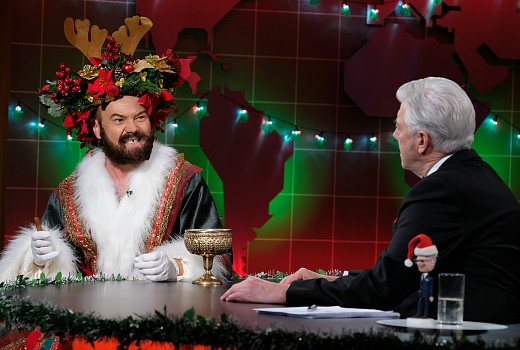
Add in parodies of Vera and Call the Midwife, a Claymation Rudolf the Red Nose Reindeer,and a version of Beethoven’s Symphony No. 9 (Ode to Joy), with Stephen Hall and Francis Greenslade dressed as teeth, and this was a pretty-solid hour of comedy. Better, we’re predicting, than tomorrow night’s The Yearly, anyway.
The lesson here? At Christmas time, even in the middle of a global pandemic and a climate change emergency, the satire should be a bit more subtle. There were as many hard-hitting gags about our awful government in Mad As Hell as there were in the War on 2020, but Mad As… made sure they were funny. Or at least stupid.
And right now, stupid jokes are about all we can cope with.
Voting now open in the Australian Tumbleweed Awards 2020
As if this year couldn’t get any worse, it’s time to vote in the Australian Tumbleweed Awards 2020.
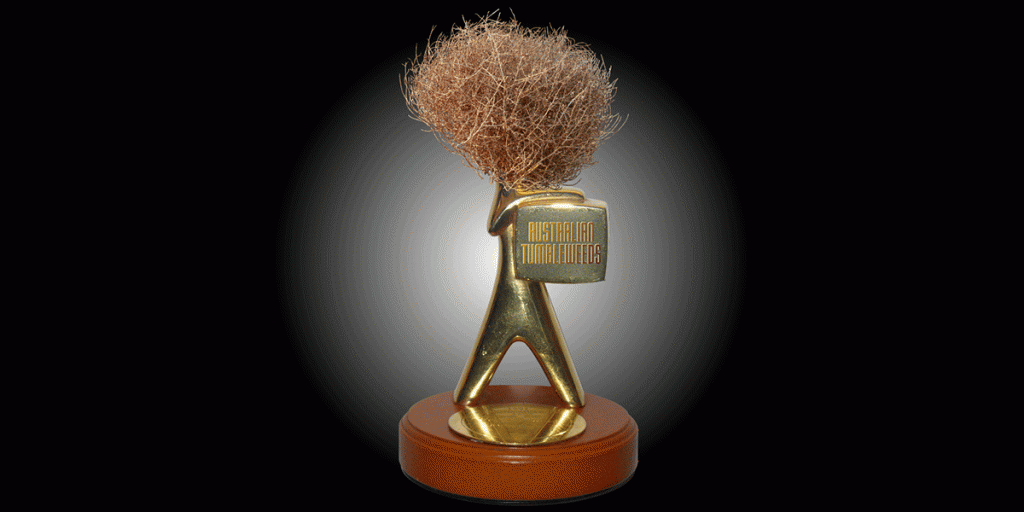
Remember all those COVID-19 comedies that got rushed out in April/May/June-ish? We’ve got a category just for them!
Remember all those Aussie comedy films you weren’t able to see at the cinema? And also didn’t want to see in the first place? We’ve got a category for them!
Plus we’ve got categories for all your favourite and least Australian comedies of 2020.
Keen to start voting? Get going now. You have until Saturday 16th January to cast your vote.
We’ll tell you who’s won at the end of January.
It’s Square to be Hip
Australian comedy’s biggest problem probably isn’t a lack of ideas, but that’s got to be somewhere up near the top of the list. Point at a sketch show and chances are the same set-ups turn up time and time again; most sitcoms are little more than the same episode over and over again. Character comedy is the worst, with characters no sooner established than their handful of quirks and catchphrases are run into the ground and then stomped on for added effect.
So why are we about to give the Bondi Hipsters latest special a good review?
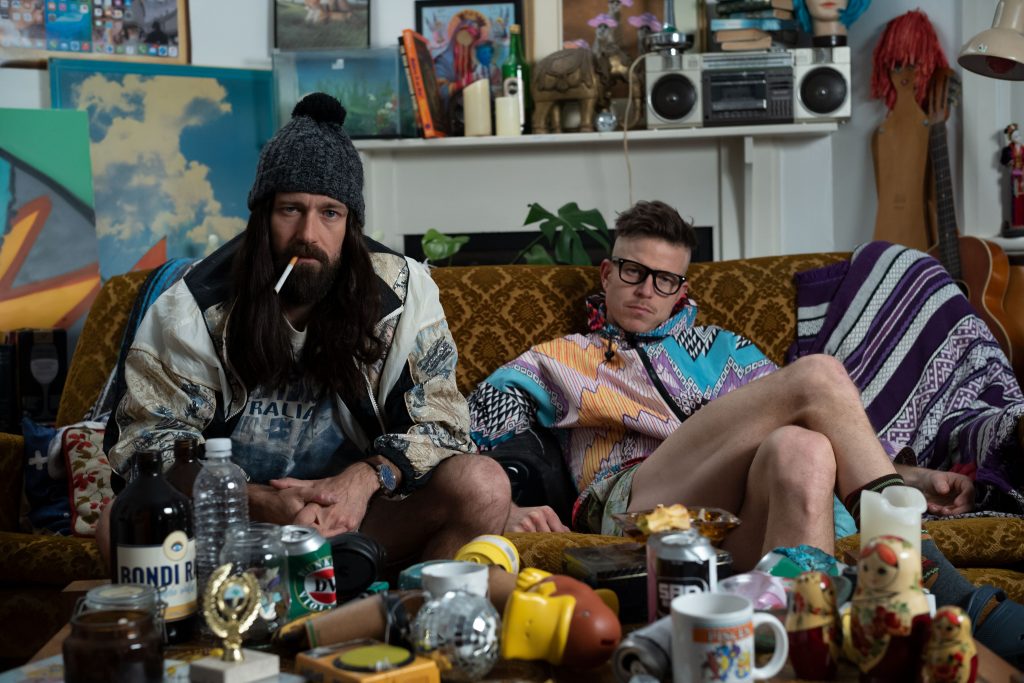
We’re as surprised about this as you are. For years the Bondi Hipsters have been mining one extremely thin vein of comedy – trying to be cool makes you a fool – and while a little can go a long way (we didn’t mind Soul Mates), Nathan Barley got there first and did it a lot better without ever really being classic comedy either. And yet…
Okay, Dom and Adrian: 2020 (now available to stream on Stan) kicks off with a string of fairly obvious gags about how this was going to be their year only a string of disasters derailed their “USB DJ” careers, segues into the mockumentary set-up and then… picks up speed? Which is pretty much the opposite of what we expected after a lifetime of Australian comedies that run out of puff five minutes in as the writers figure that one gag they really laughed at deserves at least two minutes to really bed in.
The angle here is that the half-hour (well, 33 minutes) special covers their whole nightmarish 2020, which means they have a whole year of material to work with. We’ll stop being surprised in a minute, but they do make full use of having a full year of material, firing out the gags at a rapid pace while weaving in a couple of running jokes (their rent situation, Adrian’s dad’s sinister bunker) and an emotional through-line (Adrian wants to be besties with Dom; Dom is like a lone wolf, only hairier) that ties this occasionally sketch-y special all together.
It’s important to note that the jokes aren’t really anything hilarious taken on their own. This is a special that works because it’s constantly varying the pace and tone, weaving from lists of dumb ideas to lines like “this will kill thousands and thousands… of our future gigs” to sight gags like drinking tea out of a big jar. It’s not that this has loads of laugh out loud moments or classic insights into the train wreck that was 2020, more that it’s constantly buzzing along at a steady level of mild amusement.
Comedy – and the media in general – moves at such a rapid pace these days that no sooner has something of interest happened than all the decent jokes are made. Dom and Adrian: 2020 straddles the line between being an extremely short comedy telemovie and an end-of-year special* in a way that works because it’s filtering those jokes we’ve all already heard through a couple of reasonably well-crafted comedy characters and then it gets the hell out.
You wouldn’t want it to go much longer and it doesn’t make us want to see Dom and Adrian again any time soon, but while it’s on a screen in front of us? There’s definitely worse ways** to relive 2020.
.
*Which is all the “new” comedy that’s left on Australian television this year, with both Mad as Hell and The Weekly / The Yearly doing end of year round-ups.
**The Yearly
Vale Seven’s entire comedy output for 2020
As the year draws to a close, so has Housos vs Virus and Regular Old Bogan, the only comedies made by Seven in 2020.
Housos vs Virus is not a show we will miss. In fact, if you only watched one or two episodes out of the total five, you saw all the material this sitcom about welfare cheats, drug addicts and homeless bums coping with lockdown was ever going to include.
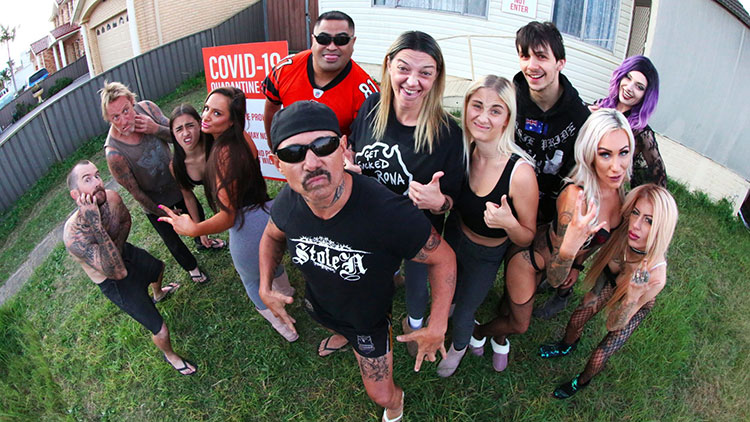
We counted at least three episodes which featured a scene where one of the Housos gets into a fight at the supermarket over the last roll of toilet paper. And at least two episodes which involved the show’s central character, Frankie (Paul Fenech), having to break out of the lockdown house to get food, toilet paper, drugs, booze or some combination of all four. And several of these involved stealing from an office, bottlo or chemist.
So desperate was Housos vs Virus for material to fill its five episodes (that’s five rather than the usual six) that the show also included extended orgy scenes involving Frankie and the “skanks” (three melon-breasted, pert-bottomed women) who were, improbably, attracted to him, and equally long and unnecessary scenes which involved members of the cast singing karaoke.
It’s almost like not a lot of funny stuff actually happens in lockdown. Or that Paul Fenech can’t write comedy to save his arse.
A show more worth watching was Regular Old Bogan, a six-part animated series about suburban dad Gavin Stubbs, his wife Wendy and their two kids Toby and Mary. And if this sounds like an Aussie take on the well-established formula of such shows as The Simpsons and Family Guy, then yes, it is.
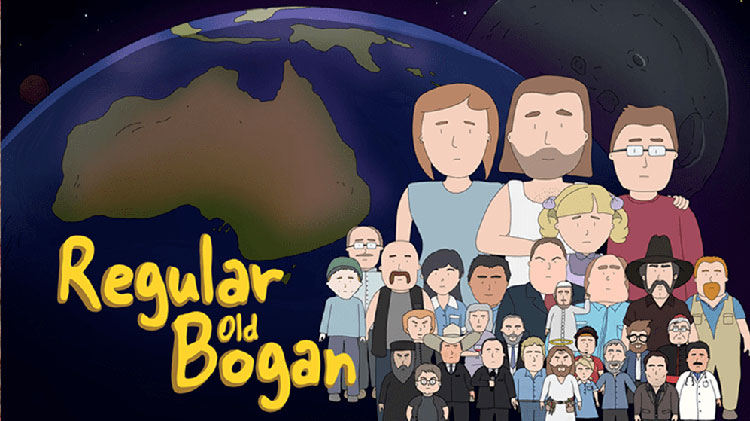
Gavin is a traditional Aussie male who gets carried away with things due to his stupidities and prejudices. In one episode, he takes Toby on a fishing trip but doesn’t plan the journey properly and ends up in what he thinks is a Wolf Creek scenario. In another show, he cuts off a cyclist whilst out driving, which escalates into a war between two gangs of drug dealers.
But perhaps it’s the Bali episode where the worst excesses of Gavin’s aggression and cultural superiority lead the family into danger. Locked up in Kerobocan prison type danger.
Sure, the animation in Regular Old Bogan looks a bit cheap, but the storylines are solid and do a decent job of satirising Aussie bloke culture. Some might find the final dingo kidnap episode, with its references to Azaria Chamberlain, a bit on the nose, but we enjoyed the musical number ‘Any Dingoes’ (to the tune of ‘Anything Goes’) and the B plot about marshmallows.
But, of course, the laughs don’t end there. Over the Christmas period, the ABC will be screening a festive version of Hard Quiz, plus The Yearly with Charlie Pickering, Sammy J’s 2020 Dumpster Fire Spectacular, a Spicks and Specks special, and Shaun Micallef’s Mad As Hell – Pagan Holiday Special.
There are no plans for a Housos vs Virus Christmas special, though. We hope!
The World of Tomorrow
Press release time! And it’s a doozy so we’re just going to present the highlights:
ABC Upfronts connecting all Australians in 2021
Audiences will be right at home on the ABC in 2021, with diverse Australian dramas, comedies, documentaries, news, arts, entertainment, and children’s programs. ABC stars Rachel Griffiths, Wil Anderson, Erik Thomson, Kitty Flanagan, Leigh Sales, Nakkiah Lui, Craig Reucassel and Superwog helped announce the ABC’s 2021 content slate, showcasing the best of Australian content and creativity in the way that only the ABC can.
ABC Managing Director David Anderson said no other media organisation has the breadth and depth of trusted content for all Australians. “Support for Australian creativity has been at the heart of the ABC for the past 88 years and will continue into 2021. After a challenging year of disconnection, the ABC will bring more Australians together from more places across this wonderfully diverse country. The ABC is the creative voice of Australia and in 2021 we will bring more homegrown content to audiences than ever, across TV, online and ABC iview.”
ABC Director of Entertainment & Specialist Michael Carrington said: “The ABC in 2021 is rich, diverse and inclusive, showcasing Australia’s best and emerging talent on and off screen. ABC iview will be home to more original Australian content than ever before. Our rebranded secondary channel ABC TV Plus will celebrate Australian culture every night of the week, including live performances, premiere documentaries, stand-up comedy, and a new weekly arts show. In 2021, the ABC will deliver more Australian voices, faces and stories than any other network – that’s our point of difference. Amid so much content from overseas, Australians are right at home on ABC.”
Highlights for 2021
DRAMA
[who cares?]
FACTUAL
[as if!]
COMEDY AND ENTERTAINMENT
[here we go]
The ABC will bring together all Australians for a laugh with new episodes of Spicks and Specks, while Charlie Pickering and Annabel Crabb will think the unthinkable in a new series of Tomorrow Tonight. Sarah Kendall puts on her big hair for more Frayed, while Erik Thomson joins ABC’s comedy alumni, starring as a disgraced chef in the delightful new series Aftertaste. Nakkiah Lui leads a fresh line-up of talent in Preppers, while Kitty Flanagan brings her singular and hilarious voice to the fast-paced comedy Fisk, about a high-end lawyer who is forced to work in a shabby suburban law firm.
ABC TV Plus (previously ABC Comedy)
Launching January 1st and airing from 7.30pm to 2am daily on channel 22 on your digital TV, channel 134 on Foxtel or channel 126 on Optus, our newly-rebranded secondary channel ABC TV Plus will celebrate Australian culture and content every night of the week. Complemented by an exciting suite of international shows, ABC TV Plus will cater for all Australians with diverse new programs, from Saturday stand-up comedians to primetime premieres of religion, science and natural history documentaries, along with the best of the arts – three nights a week. ABC TV Plus will warm the heart, challenge the mind and tickle the funny bone, with the premiere of new comedy series Why are You Like This, which follows three 20-something friends as they hilariously navigate life’s complexities.
ARTS
[this is just celebrities – by which we mean “much-loved” actors – hosting vanity projects. Ignore]
ABC iview
In 2021, supporting the ABC Five Year Plan, ABC iview will offer even more to viewers through improved user features, greater personalisation and a bigger and better catalogue of original Australian content. Headlining the ABC’s streaming service will be our high-end dramas including Wakefield, comedy with Aftertaste and Fisk as well as the return of the not-so-average teenagers – Superwog and Johnny – in a new series of the #1 trending show Superwog. Joining the boys on ABC iview will be the powerful documentary Strong Women, which follows four resilient competitors as they strive to become Australia’s strongest woman, and Chopsticks or Fork?, which explores regional Australia’s love affair with Chinese restaurants. ABC iview will also launch Indigenous comedy series All My Friends are Racist, while ABC Australia’s That Pacific Sports Show will celebrate the sporting achievements of Pacific Island athletes and nations for our viewers in the region.
ABC ME and ABC Kids
[blah blah Bluey blah blah]
NEWS
[Q+A is now on at 8.30pm Thursdays! Guess it’s the new Footy Show]
RETURNING FAVOURITES
[oh god]
ABC shows that audiences know, trust and love will be back in the new year, including: Gardening Australia, Gruen, Shaun Micallef’s Mad as Hell, The Weekly with Charlie Pickering, Anh’s Brush with Fame, Hard Quiz , The Set, Dream Gardens, Catalyst, You Can’t Ask That and Landline in its 30th year – plus many more beloved programs.
Add to this the ABC’s coverage of major events throughout the year, including New Year’s Eve, Anzac Day, and the Australian of the Year ceremony. These programs and events are just some of the ways the ABC will connect all Australians, keeping them entertained, informed, and engaged in 2021 and beyond.
Short version: shit, this looks grim. Usually we walk away from a press release about the ABC’s upcoming line-up thinking “hey, at least Mad as Hell is coming back”, but even that’s not the comfort it once was.
Four sitcoms across an entire year would be a new low for the main ABC channel, but after 2020 we’re guessing they’re hoping nobody will notice that comedy has been cut back – sharply – yet again. Especially as Aftertaste was due this year and was bumped back due to Coronavirus-related delays.
And what kind of line-up is this? Aftertaste is the unfunny dramedy for the ABC’s core viewers to stop them asking where Rosehaven‘s gone and Preppers is a roll of the dice on fresh faces we may never see again, which leaves Fisk and the returning Frayed as the only real hope for actual laughs. The ABC has four categories for comedy – for the oldies, fresh blood, something that worked last time, and something that might be actually good – and they’re just giving us one of each.
(also, what happened to all that overseas funding that we used to hear so much about?)
Meanwhile over on ABC Comedy ABC TV Plus, we have an entire channel devoted to… what exactly? A mish-mash of undifferentiated “content” they can’t even be bothered to name? And also Why Are You Like This, which as literally the only new show across the entire network – albeit one which was first announced last year – is going to have its work cut out for it and then some. It doesn’t matter how good the end product is if nobody knows how to find it.
At least iView has two comedy series lined up – the return of Superwog and All My Friends Are Racist – along with a vague sense that the ABC actually gives a shit about what’s happening there.
It’s difficult to work out if this is a steep decline or a gradual downhill slide in the amount of comedy being made, which is exactly how the ABC likes it. We had two series that seemed headed for 2020 held over until 2021 but we did get two extra corona-themed comedies instead, though considering they were (relatively) cheap and (relative) rush jobs it’s unlikely they “count” as two entire shows as far as costs and resources go.
Basically, without the two holdovers we’d be looking at five short run comedy series across all the ABC outlets in 2021, which is what, half an hour of scripted comedy a week for around half a year? Fun fact: HYBPA? manages more than that, and that’s just one show.
It gets worse. There’s no new panel shows this year, no new attempts at a comedy quiz show, no comedy tonight show, no “lets laugh at a bunch of clips” show, no attempt to try and win over a mainstream audience by putting on a bunch of fresh but cheap comedy in a regular timeslot and hoping it become part of the audience’s viewing habits. We know the ABC’s budget is tiny and vanishing, but comedy is cheap: they should do better.
And all this is the good news! Don’t think we missed this:
The ABC will bring together all Australians for a laugh with new episodes of Spicks and Specks, while Charlie Pickering and Annabel Crabb will think the unthinkable in a new series of Tomorrow Tonight
Hopefully Tomorrow Tonight will feature the ABC programmer who decided to bring that pointless Hypotheticals photocopy back, because clearly they’re an expert in “thinking the unthinkable”.
With Mick Molloy and Tony Martin
Three or four Prime Ministers ago, Tony Martin announced that he’d dropped off his collection of recordings of Martin / Molloy – the drive-time radio show he did with Mick Molloy in the latter half of the 90s – at the Australian National Film and Sound Archives (or NFSA).
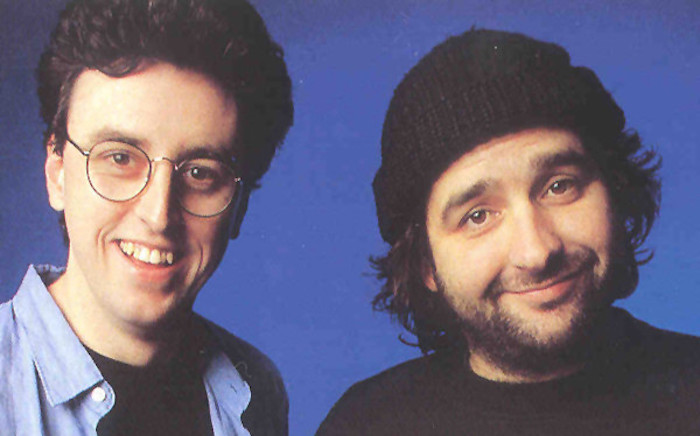
Fans rejoiced: aside from the three best-of CD compilations and some off-air recordings, much of Martin / Molloy had been lost to fans since it first aired.
Then… not much happened. Until now!
As the NFSA press release said:
The Martin/Molloy program, named for its star comedians, Tony Martin and Mick Molloy, ran on Australian radio from 1995-98.
Produced at Austereo‘s Fox FM in Melbourne, it was broadcast live on up to 54 radio stations across Australia during this time.
The fast-paced, sketch-based format had previously been restricted to breakfast radio; the idea of such a show working in late afternoons (4pm-6pm weekdays) seemed far-fetched to some radio insiders, however, Martin/Molloy was a ratings success, and quickly grew from being broadcast on just Austereo’s metropolitan stations to airing around Australia.
An entire generation of drivetime radio comedy-talk shows followed and this format remains the backbone of the major commercial FM networks in Australia to this day.
Tony Martin gifted the original recordings of Martin/Molloy to the NFSA in 2013, and he says, “Not only have the NFSA finally completed the mammoth task of digitising the Martin/Molloy archives, now they’ve gone and inducted us into their Sounds of Australia. As fans of our show would recall, some of those sounds were rather rude, but as a massive radio nerd – and a New Zealander – this is a huge honour.”
As part of this honour, the NFSA have put up a collection of clips on their website – we found a bunch by searching for “Australian comedy” but “Martin / Molloy” might work even better – and they’re well worth a listen, both for being actually funny and as a window to a long-forgotten time when actual scripted sketches were still a thing on Australian radio.
As a bonus, each clip comes with a paragraph or two of scene-setting info (ie “[this sketch] also features some of Mick Molloy’s trademark yelling”) putting the piss-farting about into context, which is probably useful considering the show is well over twenty years old now.
Not that John Howard jokes will be going out of style any time soon, more’s the pity.

